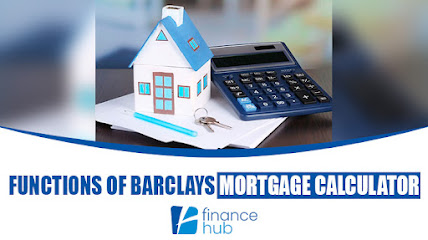Functions OF Barclays Mortgage Calculator

If you’re in the market to buy a new home or refinance your current one, you may want to take advantage of the Barclays for intermediaries affordability calculator before making any major decisions. This tool allows homeowners to not only understand the process of purchasing or refinancing but also determine how much money they can expect to spend based on their unique situation. The key function of the Barclays Mortgage Calculator is Calculates the monthly payment and interest rate for a loan. It analyzes the property in detail. It also shows you the amount of property you need to pledge in order to get a particular loan. An analysis of various mortgages among various lenders is provided in this tool. What Is A Mortgage Calculator? A mortgage calculator is a tool that helps potential home buyers estimate how much they can afford to borrow, as well as their monthly mortgage payments. This rent affordability calculator UK takes into account fa...
